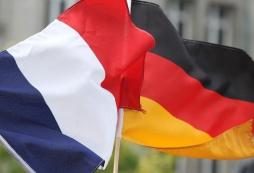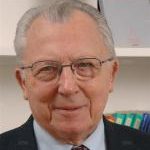[FR] The Franco-German engine put to the test by Agenda 2000
Seminar organised in collaboration with the Bertelsmann Science Foundation, 3–4 February 1999, Berlin.

REPORT BY JEAN-LOUIS ARNAUD
FOREWORD BY JACQUES DELORS
On 3 and 4 February in Berlin, our Study and Research Group, in collaboration with the Bertelsmann Science Foundation and the Munich Centre for Applied Political Research, organised a high-level Franco-German seminar on the Agenda 2000 currently under negotiation.
Around 30 parliamentarians and senior officials at national and European level and several eminent academics and journalists from France and Germany took part. The participants discussed the reform of the Common Agricultural Policy and the Structural Funds, as well as the future financing of the European Union on the basis of presentations by representatives of both countries.
Today, at a time when the Union is facing an extremely busy agenda, doubts are emerging about the future of European integration and, more specifically, the ability of France and Germany to relaunch the process. Our aim was to encourage an in-depth debate on the various aspects of the Union’s budget package for 2000-2006 by identifying a common basis for discussion between France and Germany. Whether discussing the Common Agricultural Policy, the Structural Funds, aid to candidate countries or their budgetary implications, we believe it is essential to maintain the Franco-German dialogue. Moreover, it is essential to avoid an ‘accounting’ solution in which a short-term cost-benefit analysis obscures the broader picture.
The report of our joint seminar reflects the divergent positions of France and Germany, particularly on the financing of the Common Agricultural Policy. Nevertheless, it highlights areas of consensus, such as better targeting of regional aid and the importance of rural development policy. In addition, a recurring theme raised by participants was the need to go beyond the current negotiations to consider the long-term future of an enlarged Europe, with a greater role for common policies other than agriculture and regional policy. In short, ‘what do we want to do together and why?’





